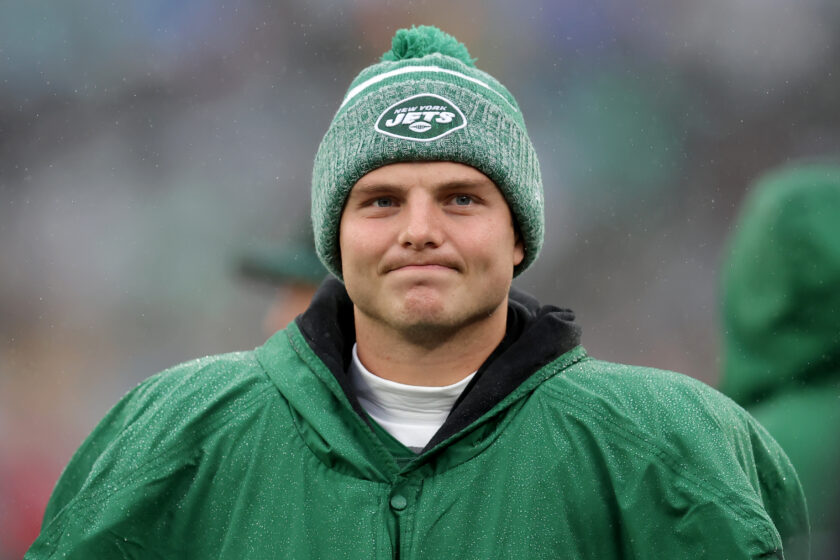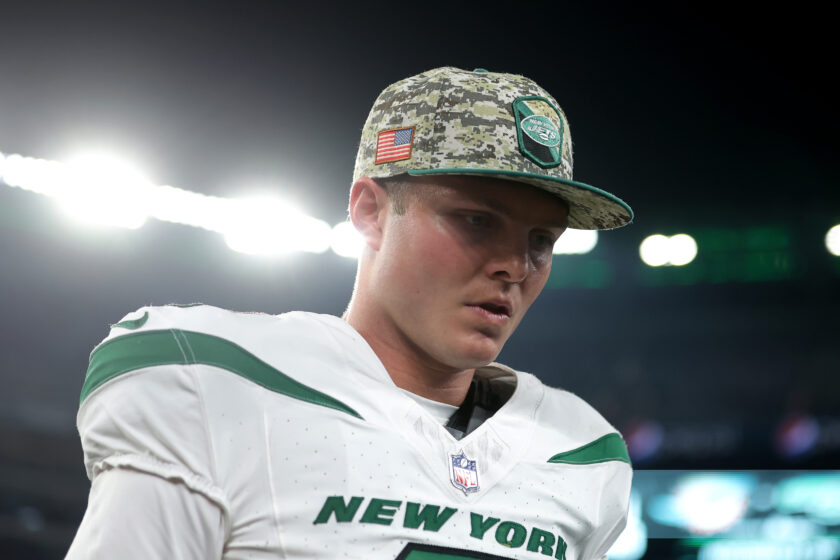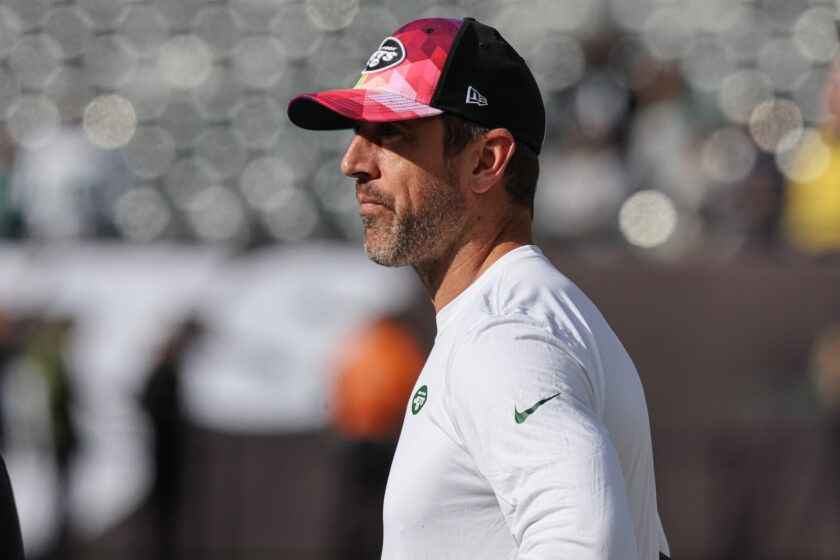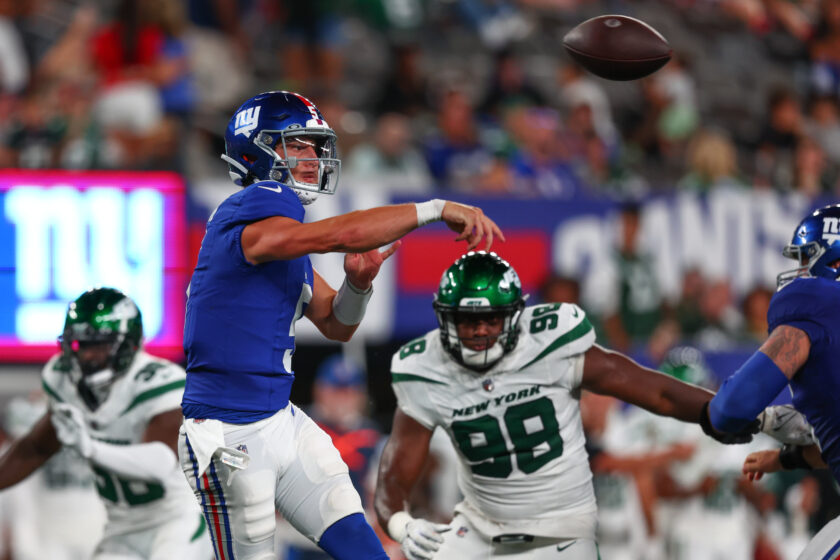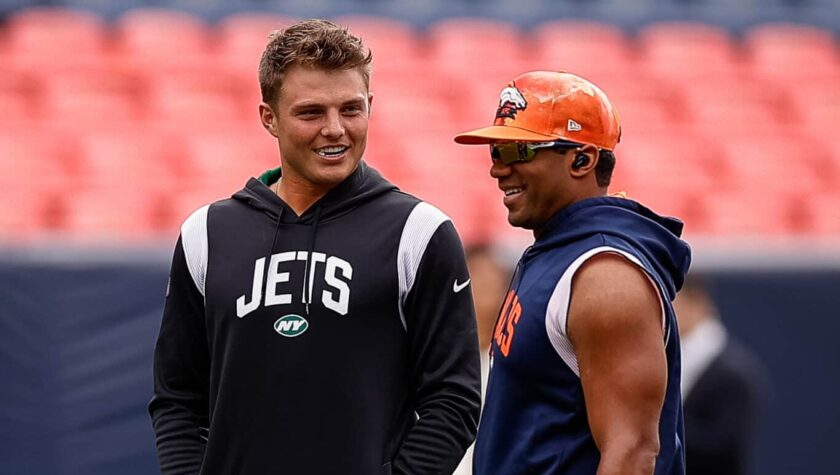New York Jets: Second-round picks haven’t been kind to Gang Green
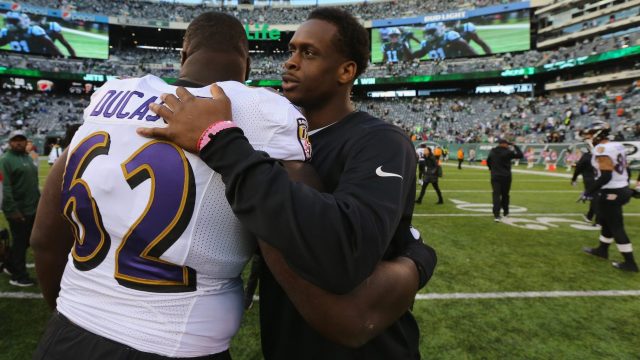
Trading away three second-round picks to move up in the draft was a bold move for New York Jets GM Mike Maccagnan. Perhaps understanding the Jets failures in the second round can help ease the fear of giving up too much.
Heading into the 2018 offseason, New York Jets general manager Mike Maccagnan knew he had many holes to fill to turn the Jets from an overachieving 5-11 team into a contender.
So far Maccagnan has done a very good job of using the over $90 million in salary cap money he had at his disposal well, learning from his mistakes of 2015. The Jets have filled holes at linebacker with Avery Williamson, at cornerback with Trumaine Johnson, at running back with Isaiah Crowell and at center with Spencer Long.
Last week, after missing out on Kirk Cousins at quarterback, the Jets went to Plan B by re-signing Josh McCown and bringing in former first-round pick Teddy Bridgewater.
Despite all these positive moves, Maccagnan’s move of trading up three spots in the 2018 NFL Draft will either make or break his tenure with the Jets.
The price of moving up three spots to secure a QB that might have been available at number six anyway does cause some concern when looking at the remaining holes on the Jets roster.
Was giving away three second-round picks smart for a GM that wants to rebuild this team through the draft?
Perhaps looking at the Jets history of second-round selections will help ease the concerns that they paid too steep a price.
[sc name=”Jets Center”]Recent history is obvious with the selection of Christian Hackenberg in 2016 (one of Maccagnan’s own). Devin Smith in 2015 has had an injury-plagued career, while 2014 second-round pick Jace Amaro is no longer with the franchise.
Geno Smith (2013) was given a chance at the starting quarterback position before failing. Stephen Hill (2012) was supposed to be the next Wesley Walker but totaled just 594 receiving yards and four TDs in two seasons before being released. Vlad Ducasse (2010) was considered a “project” for the offensive line, but after a few seasons proved he didn’t have the talent to play in the NFL.
The selection of David Harris in 2007 did work out well for the franchise. Harris teamed with first-round pick Darrelle Revis to lead the Jets defense for their consecutive AFC Championship Game appearances in 2009 and 2010. Harris could wind up in the Jets Hall of Fame one day but is a second-round anomaly.
Kellen Clemens (2006) was given a chance to start at QB as well but never panned out. Justin Miller (2005) made the Pro Bowl on special teams but faded quickly and wasn’t effective as a cornerback. Fellow second-round round selection Mike Nugent has had a nice career as a kicker, totaling 247 field goals at an 81 percent rate in his 13-year NFL career to date. However, only four of those seasons were with the Jets.
Victor Hobson (2003) started for a few years at LB but was finished in the NFL at age 28. John McGraw (2002) was a nice backup in the secondary but played only three of his 10 seasons with the Jets.
LaMont Jordan (2001) played a key role for the Jets at RB as a backup for Curtis Martin. However, he never started a game in his four seasons with the team and finished with just 1,277 rushing yards and 10 TD before leaving as a free agent. Despite the promise he showed with the Jets, he only ran for 1,000 yards once in his nine-year NFL career.
Prior to the millennium, second round picks included DE Dorian Boose (1998), DT Rick Terry (1997), WRs Alex Van Dyke (1996) and Ryan Yarborough (1995), DE Coleman Rudolph (1994), Kurt Barber (1992) and WR Reggie Rembert (1990). Most current fans never heard of these players.
The Jets selection of Browning Nagle with their second-round pick in 1991 was again supposed to supply the Jets with their QB of the future. However, after an impressive preseason and season-opening game in 1992, Nagle fizzed out and was replaced by Boomer Esiason in 1993.
Perhaps this look back into the Jets disastrous history of second-round selections can help those who questioned Maccagnan’s decision. Perhaps it will make some fans who weren’t aware of the Jets draft history question their decision to root for the franchise. Either way, it helps give perspective.
As the team moves forward in the offseason, Maccagnan has put all his chips already on the table. While most team insiders want Sam Darnold of USC, he might not be there at number three if the Cleveland Browns or New York Giants decide he is the man for them.
If he’s off the board, the Jets would then turn their focus to either Oklahoma’s Baker Mayfield or perhaps even Wyoming’s Josh Allen to learn on the sideline for his first season with the green and white.
One thing that has occurred this offseason so far is that the Jets are significantly better on paper than they were entering.
If they can add their franchise QB of the future, Maccagnan will have secured his spot as the greatest GM in franchise history.
But if this fails, and the third overall pick turns into another Mark Sanchez, then he will be just like the rest of the GMs that have come before him—in over his head.
[sc name=”Jets Link Next” link=”https://elitesportsny.com/2018/03/18/new-york-jets-trading-up-2018-nfl-draft-must/” text=”Moving Up In 2018 Draft Was A Must For Jets” ]Mark Everett Kelly, formerly of ESPN, Mark Everett is a 2-time Emmy Winner that had to retire from ESPN in 2008 due to side effects of cancer treatment. Since then Mark has been active as a Public Speaker, Author and Blogger. He is a Sports History Expert and his speeches inspire many who fight daily setbacks to pursue their goals.
Mark occassionally writes for ESNY. He is the author of "My Scars Tell A Story" which highlights his endless battle fighting the side effects of cancer treatment. He also blogs on his website, ckmagicsports.com about "Living As A Cancer Survivor". Mark also does not hide that he has a personal relationship with Jesus. He despises judgemental people and his speeches encourage and speak up for those who can't speak for themselves.

